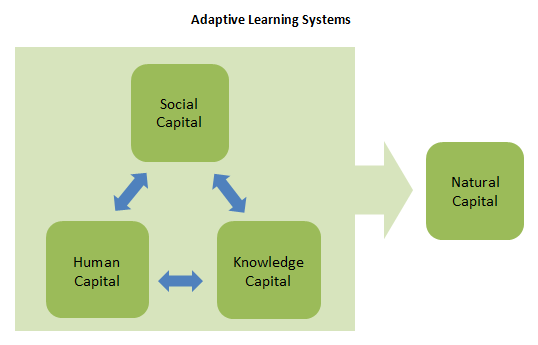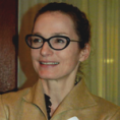Building Adaptive Learning Systems for NRM and CCA Outcomes and Sustainable Inclusive Growth
Lessons from Mauritius, Seychelles and Iran, other GEF-UNDP projects
In developing countries and regions, knowledge for natural resources management (NRM) and climate change adaptation (CCA) remain scarce and fragmented within weak knowledge systems. Knowledge about CCA and NRM, including environmental, social and economic risks, costs and benefits, is not integrated with mainstream development knowledge nor are its architects systematically linking its scientific sources to policy decisions and practical actions.
This blog intends to make two main points: 1. Using NRM and CCA knowledge as an input to increase knowledge capital is critical to inclusive growth and sustainable development; 2. NRM and CCA knowledge systems should be included in the baseline analysis for project design to inform policy-making and systemic responses. The authors reviewed three cases of evaluations on CCA and NRM practices in Mauritius, Seychelles and Iran, with reference to insights based on similar evaluation studies conducted in the Black Sea Region, Lake Chad Region, Mali, Guinea, Senegal, Gambia, Antigua and Barbuda, and Lesotho, by co-author Hodge.
Knowledge-based NRM and CCA
In the sustainable development framework, human well-being is a function of five different capitals (natural, manufacturing, human, social and knowledge) and three of them (knowledge, human and social) are inherently linked to learning system approaches. (Cash, et al, 2003)
For NRM and CCA, stakeholders should be fully mobilized as learning proxies in an adaptive learning system, creating a circulation of social capital, human capital and knowledge capital. This sustainable model will ensure that governments and other key stakeholders will continue their engagement and resource commitment to NRM and CCA beyond the life of GEF projects, making the approach cost effective.

Barriers to NRM CCA Capacity Strengthening
These are the key barriers to increasing knowledge capital and building capacities for sustainable development:
- On the institutional level, laws and policies are fragmented regarding NRM and CCA, while the institutional linkages are weak, especially regarding the integration with education and scientific institutions.
- On the individual level, there is insufficient training of NRM and CCA knowledge, values and skills for various stakeholders. The level of integration into formal education systems is low.
- On the chain of public service delivery, from research to policies, implementation and monitoring & evaluation, the free flow of knowledge within and across sectors is inhibited due to a lack of trust and ownership among local community members in a top-down model.
To tackle these barriers, collective learning mechanisms should be included in program design for NRM and CCA in order to institutionalize knowledge sharing, facilitate the mainstreaming of NRM and CCA knowledge and build adaptive capacities in local communities.
Good Knowledge-Based CCA & NRM Approaches
We want to share the five key lessons learned from the evaluations of CCA and NRM programs:
- Social, environmental and economic systems interact in complex and dynamic ways to support CCA and NRM, requiring inter-sectoral collaboration and inter-disciplinary indictors to foster knowledge sharing and collective learning;
- When stakeholder groups learn and work closely together, more is achieved by building fundamental trust needed to facilitate collective planning efforts to address increasing uncertainty and risks related to dynamic changes in the local environments;
- Local governance and institutions are needed to empower local stakeholders to take ownership in CCA and NRM learning, as an inclusive mechanism to meet social, economic and environmental needs in the long term.
- CCA and NRM goals can be achieved effectively and efficiently when policies support inclusive and adaptive learning systems and involve learning stakeholders cross a broad range of institutions.
- Adaptive and decentralized management of NRM CCA resources is a critical methodology for results, as key stakeholders learn to handle the non-linear process of change. In the short term, seed funding projects that give power to user groups and set up multi-stakeholder decision-making processes are intended as enablers and/or demonstrations for change.
Integrating Learning Systems in Program Design
These are the key elements for knowledge-based NRM and CCA learning systems that should be included in program design:
- Policy shifts to enable vertical and horizontal stakeholder engagement in learning and decision-making processes;
- Decentralized governance of CCA and NRM that empowers local stakeholders, especially women, to organize and participate in policy research, program design and implementation, builds trust among local stakeholders, encourages collective ownership and strengthens institutional linkages;
- Participatory monitoring of social and environmental data that includes local stakeholders (NGOS, private sector, communities and government institutions) in adaptive learning systems and captures local knowledge;
- Ensure adaptive management is built within the project design and include a flexible log frame as a project management enabler for results. Thus, local stakeholders are empowered, reorganized and integrated into an inclusive social system that could mobilize them to achieve collective CCA and NRM goals.
Key Questions for Feedback
- Which elements of CCA & NRM learning systems do you think are critical to sustainable development?
- What are your experiences conducting cost-benefit analysis that incorporates environment, economics and social indicators? How does collective learning factor in this?
- How do you evaluate the effectiveness of an adaptive management system (as a result)?
- Can you please share your good approaches for participatory and learning-based monitoring of social and environmental data?
We look forward to discussing these questions with you!
Further Reading:
- Aggestam, Filip, and Stephanie Hodge. "A Critic of Stakeholder Participation and the Decision-Making Processes Affecting the Design and Implementation of Trans-Boundary Water Governance Projects Bordering Vulnerable/High-Risk States"
- Cash, David W., William C. Clark, Frank Alcock, Nancy M. Dickson, Noelle Eckley, David H. Guston, Jill Jäger, and Ronald B. Mitchell. "Knowledge Systems for Sustainable Development." Proceedings of the National Academy of Sciences 100, no. 14 (2003).
- Clark, William. "Linking Knowledge with Action for Sustainable Development." February 21, 2007.
- Folke, Carl, Steve Carpenter, Thomas Elmqvist, Lance Gunderson, Crawford S. Holling, and Brian Walker. "Resilience and Sustainable Development: Building Adaptive Capacity in a World of Transformations." AMBIO: A Journal of the Human Environment 31, no. 5 (2002).
- Hedger, Merylyn McKenzie, Tom Mitchell, Jennifer Leavy, Martin Greeley, Anna Downie, and Lisa Horrocks. "Evaluation of Adaptation to Climate Change from a Development Perspective," August 2011.
- Hodge, Stephanie. "Capacity Building and Knowledge Management for Sustainable Land Management in Mauritius Including Rodrigues," May 3, 2012.
- Hodge, Stephanie. "Climate Resilient Infrastructure Improvement in Coastal Zone Project ADB/LGED Bangladesh Report," 2012.
- Hodge, Stephanie. "Institutional Strengthening and Coherence for Integrated Natural Resources Management in Iran," 2014.
- Hodge, Stephanie. "Learning and Capacity Development Programs for Resilience: A Global Education Leadership Agenda for Change." New Mexico, 2014.
- Hodge, Stephanie. "Strengthening Seychelles’ Protected Area System through NGO Management Modalities," November 17, 2013.
- Hodge, Stephanie. "Linking ERL and NRM in Mali, Guinea, Senegal and Gambia, West Africa," November 2014.
- Hodge, Stephanie. "Climate Change Adaptation in Coastal Zone of Mauritius," November 2014.
- Hodge, Stephanie. "Climate Change Adaptation and Disaster Risk Reduction in the Education Sector, Technical Guidance for UN program countries," 2012.
- Holliday, Laura, and William Clark. "Linking Knowledge with Action for Sustainable Development: The Role of Program Management," National Academies Press, 2006.
- Juma, Calestous. "Going for Growth: Science, Technology and Innovation in Africa. London: Smith Institute," 2005.
- Pretty, Jules N. "Participatory Learning for Sustainable Agriculture." World Development 23, no. 8 (1995).
About the Authors
- Stephanie Hodge: Expert Advisor and Evaluator: Cross Sector Education, CCA and NRM programmes
- Nan Wu: Second-year Master in Public Policy student at the Harvard Kennedy School, focusing on development studies.



